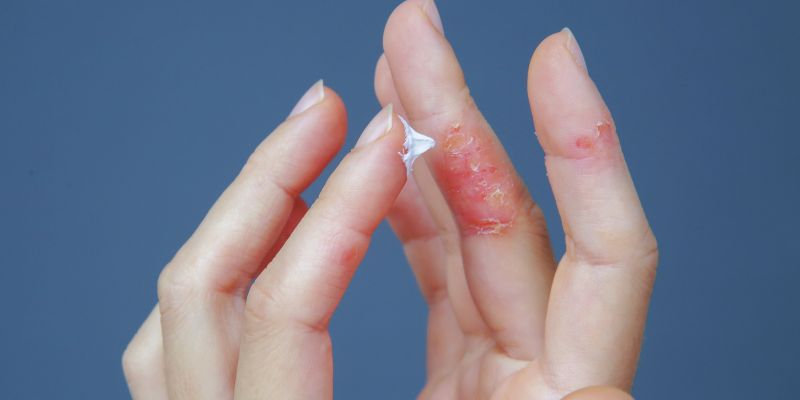From Tooth Grinding to Creativity: 5 Unexpected ADHD Insights
Attention Deficit Hyperactivity Disorder (ADHD) is often misunderstood, seen primarily as a childhood condition defined by hyperactivity and impulsiveness. However, its impact extends far beyond these traits, influencing various aspects of life well into adulthood. From unexpected dental issues like tooth grinding (bruxism) to cognitive challenges such as poor short-term memory, ADHD can manifest in subtle yet significant ways.
This article explores five surprising facts about ADHD that highlight its complexities, including its connections to stress and sleep disturbances. Understanding these facets is essential for developing comprehensive treatment strategies and fostering a deeper awareness of ADHDs multifaceted nature, ultimately leading to better support for those affected.
5 Surprising Facts About ADHD: Tooth Grinding, Memory Issues, and More
ADHD, or Attention Deficit Hyperactivity Disorder, presents a range of surprising aspects that extend beyond its well-known symptoms of inattention, hyperactivity, and impulsivity. Delving deeper into its nuances reveals several lesser-known facts that shed light on its multifaceted nature and the challenges individuals may face in managing it effectively. Here are five intriguing facts about ADHD:
Tooth Grinding (Bruxism) and ADHD Are Linked
One of the more surprising connections to ADHD is its association with bruxism, also known as tooth grinding. People with ADHD are more prone to grind their teeth, especially at night, leading to significant dental issues over time. While teeth grinding can be linked to stress or anxiety in the general population, for individuals with ADHD, the condition often exacerbates bruxism. The stress of coping with ADHD symptoms throughout the day can manifest as jaw clenching and grinding at night.

The consequences are far from trivial. Frequent grinding can lead to worn enamel, jaw pain, chronic headaches, and even temporomandibular joint (TMJ) disorders. Over time, untreated bruxism can require costly dental repairs. Moreover, sleep disturbances caused by grinding can make ADHD symptoms worse during the day, creating a vicious cycle of poor rest and heightened ADHD symptoms.
ADHD Impacts Short-Term Memory
Memory problems, specifically short-term or working memory deficits, are common in individuals with ADHD. While those with the condition generally do not experience difficulties with long-term memories, they often struggle with remembering tasks, assignments, or instructions that require immediate attention. This challenge arises from ADHD's effect on executive functioningthe brain's ability to organize and manage tasks effectively.
For instance, someone with ADHD might forget to complete a task they were assigned just moments ago, or they may lose track of conversations and have difficulty staying focused during meetings. This can create significant challenges in both academic and work settings, where short-term memory is crucial for staying on top of tasks and deadlines.
Stress and ADHD Go Hand in Hand
Stress is a significant issue for those with ADHD, affecting mental and physical health. Emotional regulation challenges in the ADHD brain heighten stress responses, even in low-pressure situations. This stress intensifies ADHD symptoms, hindering focus, organization, and time management. Addressing stress through strategies like mindfulness or therapy can be crucial for improving overall well-being and managing ADHD symptoms effectively.
Physically, stress manifests in ways such as tooth grinding (bruxism), jaw clenching, and headaches. Many individuals with ADHD may also experience neck pain due to the constant tension they hold. Addressing these stress-related symptoms is crucial for improving overall well-being and managing ADHD more effectively, highlighting the need for comprehensive treatment approaches that consider both psychological and physical health aspects.
ADHD Is Frequently Misdiagnosed or Overlooked
ADHD is often misdiagnosed or missed in adults due to symptoms resembling anxiety, depression, and mood disorders. Similarities in behavioral patterns, exacerbated by life events like divorce, can mimic ADHD in children, complicating accurate diagnosis. This overlap underscores the importance of thorough assessment by healthcare professionals to distinguish ADHD from other conditions and ensure appropriate treatment and support are provided.

Additionally, ADHD presents in various formspredominantly inattentive, predominantly hyperactive-impulsive, and combined types. Some individuals, particularly females, may not exhibit noticeable hyperactivity, resulting in underdiagnosis. Understanding these complexities is vital for the proper identification and treatment of ADHD, ensuring that individuals receive the support they need to manage their symptoms effectively. This multifaceted nature emphasizes the importance of thorough evaluations by healthcare professionals.
ADHD Can Lead to Poor Sleep Quality
Sleep disturbances are a significant but often overlooked aspect of ADHD. Many individuals with ADHD experience difficulties not only falling asleep but also maintaining uninterrupted sleep throughout the night. This challenge arises from the brain's struggle to "switch off," often exacerbated by co-existing conditions like anxiety and bruxism.
Poor sleep has a profound impact on ADHD symptoms. Chronic fatigue can intensify core symptoms such as inattention, impulsivity, and hyperactivity, making daily tasks increasingly challenging. Furthermore, long-term sleep deprivation can lead to cognitive decline, worsening memory issues and further impairing focus during the day. Thus, addressing sleep problems is crucial for effectively managing ADHD and improving overall quality of life, underscoring the need for integrated treatment approaches that consider both sleep and ADHD symptoms.
Conclusion
While ADHD is often characterized by its outward signs, such as hyperactivity or impulsiveness, the condition has far-reaching effects that are less commonly discussed. From the physical toll of tooth grinding to the cognitive challenges of poor memory retention, ADHD can influence multiple areas of a person's life. Understanding these surprising facts about ADHD allows us to see the full scope of the condition. It highlights the importance of comprehensive treatment plans that address both the mental and physical challenges associated with it.
Whether through behavioral interventions, medication, or dental treatments, addressing ADHDs wide range of symptoms can lead to improved quality of life. As research continues, the understanding of ADHD's complexities will undoubtedly expand, shedding light on even more surprising aspects of this common condition.












